Saloon - Interview
by Gary Wollen
published: 11 / 4 / 2002
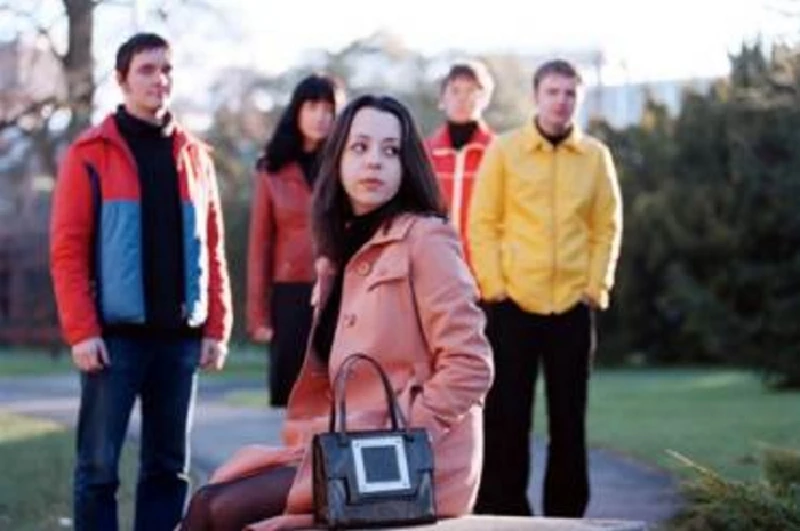
intro
Saloon's debut album '((This is) What We Call Progress' was released on the Track and Field label in April to critical acclaim. Adam Cresswell and Amanda Gomez from the band talk to Gary Wollen about its production, their influences and playing live
I am sitting in a dark, damp cellar bar in a London pub at 9.30 on a Friday evening waiting for Adam and Amanda from the band to fight their way through the notorious London traffic. I must admit to being somewhat unsure of what to expect as the last time I saw them live I found them a little distant. I decided to kill time and jot down what I already know about Saloon. 1. They originally hail from the mighty Reading, land of premium lager, untucked Ben Sherman shirts and gelled spiky hair. 2. They are – Adam Cresswell: Bass, Synth Amanda Gomez : Vocals, Guitar, Synth Matt Ashton : Guitars, Synth Alison Cotton: Viola, Melodica Michael Smoughton: Percussion, Trumpet 3. They own a patch of land on the moon, no honest!!! I decided that, now that they had arrived, that I would tackle them on the lunar issue first. PB : What are you going to do with your plot on the moon? Adam : Probably build a studio, grow runner beans or build a patio. I suppose a house would be a bit boring, unless other people were living there as well. PB : Tell me about your new debut album – '(This is) What We Call Progress' Adam : The album was produced by a friend of ours called Andrew Prinz who is in a band called Mahogany. He lives in Brooklyn, New York. Amanda : And we took the finished version of the album over there and Andrew mixed it, put on a few extra instruments and finished it off, but it was actually recorded in England. Adam : We actually put a lot of instrumentation in the songs. We like doing a song and then bringing in Moogs and guitars and then another instrument that hasn’t been in the song. Not for shock value, but just as another motif. Amanda : A lot of the sparseness in the album is to do with Andrew, because we did record a lot of stuff. When he heard it, it was a case of him eliminating everything that wasn’t needed in the songs. We recorded everything we do live and went a bit overboard because it was our first album. We recorded 3 backing vocals, 10 – 11 guitars but in collaboration with Andrew we made it a bit more sparse. That way you appreciate the instruments a bit more. Adam : Basically, we wanted to do something different to our singles which are quite short and frantic or full on. We wanted to do something which was sparse and which showed a different side to us-songs that perhaps highlighted the space and Andrew certainly helped with that aspect of the album. PB : Which bands or artists would you erase from public consciousness? Adam : Robbie Williams, for what he has done to music. I mean, he has obviously bought Nancy Sinatra’s greatest hits and then for the past two years he has been ploughing through it. PB : Yes, but it is a great album! Amanda : I know, but he has ripped it off almost in its entirety. And I wanted to do it! PB : What record should it be compulsory to own? Adam : 'Another Girl, Another Planet' by the Only Ones Amanda: 'The Velvet Underground and Nico' PB : Was the name Saloon a Western influence or an automobile influence? Adam: The whole point is it was neither really. We wanted a name that had nothing to do with music. We didn’t want people to get the wrong impression of the band from its name, something that had different associations. I just liked the idea of being something that pulled in a different direction. I suppose, really, I really like the shape of the word, the look of it, the sound of it but I didn’t think of the meaning of the word. Really, that is what the band are about, the shape, an aesthetic if you like. You know the shape, what it looks like, how it feels rather than what it means. PB : Who writes the songs? Amanda : It goes in stages really. Occasionally we write a song together, all 5 of us. We will either develop a riff that someone has bought to the band, or one or more of us will work on a song at home and present it to the band to work on. Personally, I tend to write a whole song at home and bring it to the band finished. Not necessarily with the vocals or the finished lyrics but by and large the completed song. We all work in different ways though. Adam : We have got songs that have come together in jams (I really hate that word!) or which have been formed from playing organically but that is quite a new development for this band. We never used to work in that way. Then there is a lot of material where one of us writes about 75% of the song and then presents it to the band and says ‘learn this’. PB : On listening to the album the lyrics seem to have a textural and melodic feel rather than any particular meaning. Adam : I don’t know. We do spend an awful lot of time on the lyrics and there is always meaning in there, although albeit that might be a personal meaning or personal politics. They reflect the way you live your life and your outlook on the world. Quite honestly a lot of them are very personal. Only ‘Plastic Surgery’ and possibly ‘Le Weekend’ are songs that use the vocal texturally. Amanda : Songs like ‘Bicycle Thieves’ are very much about the lyrics. Adam : I think a song like ‘Bicycle Thieves’ is a really good example because it was written at a point in the band's career when we were on a personal low and I think that was reflected in all our individual contributions to the song-Amanda’s melody, Matt’s guitar line and my lyrics. There were all three of us putting in our personal feelings at that moment, and I think that comes across, it does to me anyway. PB : What would you like to know that you don’t already? Adam : Who nicked my car stereo PB : What would make the world a better place? Adam : The biggest chunky KitKat ever. Amanda : More Moogs Adam : If the music industry was run from the Betsey Trotwood (home of record label Track & Field’s Club night). I think that would be a good thing. PB : Isn’t it then? I have noticed that at a recent live show supporting Dressy Bessy you came across as very anti-performance. Amanda : It’s partly a conscious way of performing, or non-performing, but we are quite restrained and non-showy. That gig you mentioned certainly wasn’t our best. Adam : No, we were really tired and angry and in the small room that we played it is a pain to play when the synths are going out of tune, but you try and give a good show. My favourite bands are distant live, New Order, Velvet Underground. We are not about banter or any of that. All we are about is music. That might sound boring but maybe that is why we are still going after 4 years of hard work. We are not interested in getting signed or getting the right haircut. It’s all about the music. Amanda : I think it is quite confusing if you see us live and you see us as quite distant, I think it can give the wrong impression. People can make their own minds up over the forthcoming months as the band will be playing various dates over the summer to support the release of their new album.
Band Links:-
https://en.wikipedia.org/wiki/Saloon_(band)Picture Gallery:-
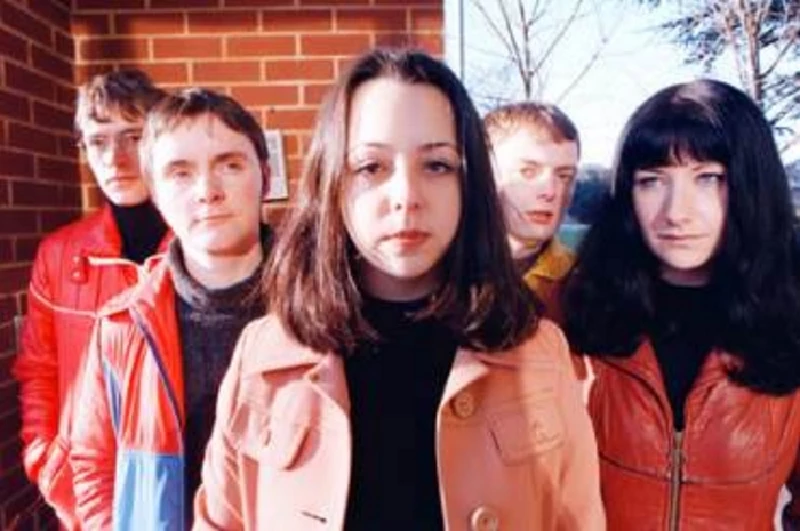
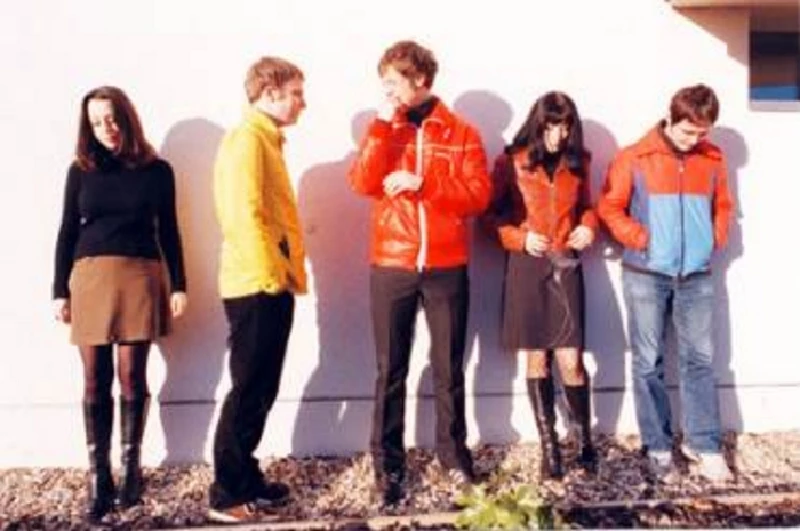
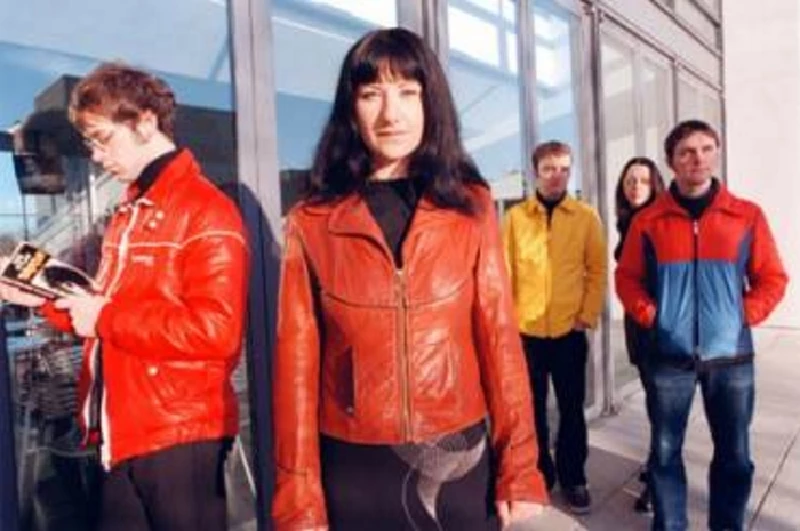
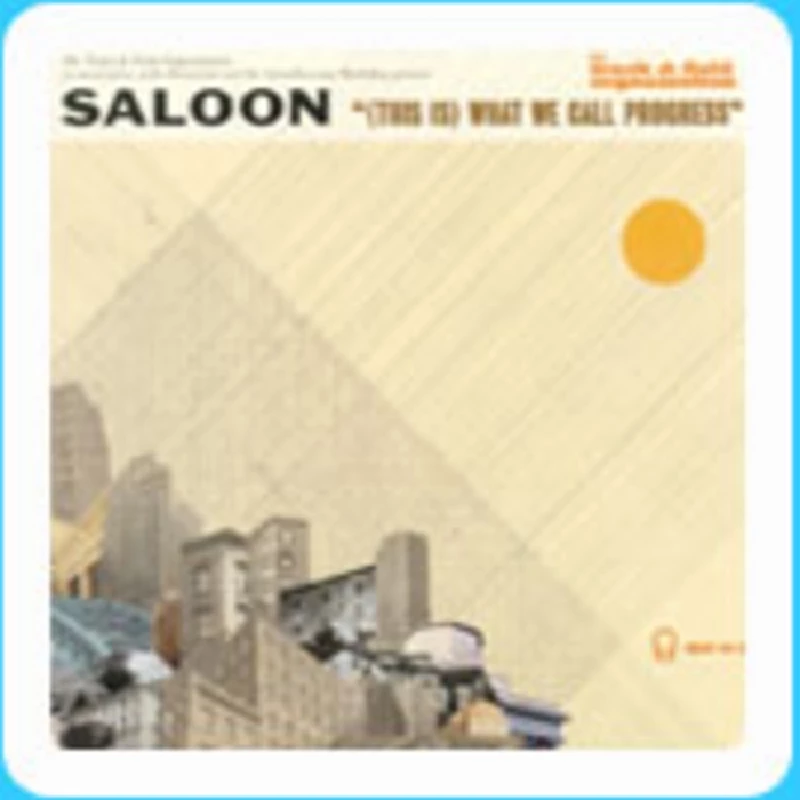
favourite album |
|
Peel Sessions 21.08.01 • 16.04.03 (2025) |
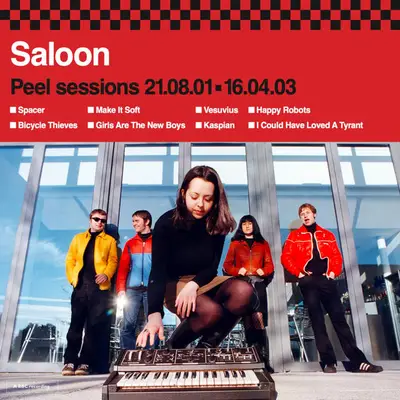
|
| In our Re:View section, in which we look back on recordings from the past, Dave Goodwin examines two John Peel Sessions from early 2000's indiepop band Saloon which have just been released by the always reliable Precious Recordings of London on 12" vinyl. |
reviews |
|
If We Meet In The Future (2003) |
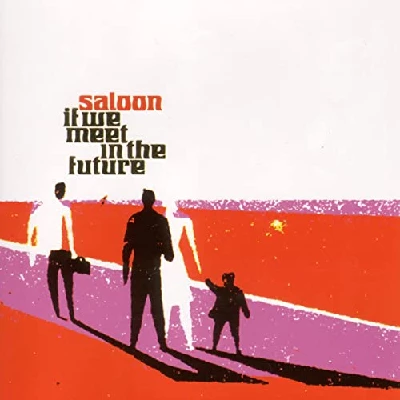
|
| Disappointing second album from the critically acclaimed Saloon, which, despite several fine point moments, proves to be "a just a little too over reminiscent" of their first album '(This is) What We Call Progress' |
| This Is What We Call Progress (2002) |
most viewed articles
current edition
Carl Ewens - David Bowie 1964 to 1982 On Track: Every Album, Every SongBathers - Photoscapes 1
Armory Show - Interview with Richard Jobson
Colin Blunstone - Thalia Hall, Chicago, 16/7/2025
John McKay - Interview
Visor Fest - Valencia, Spain, 26/9/2025...27/9/2025
Billie Eilish - O2 Arena, London, 10/7/2025
Bathers - Photoscapes 2
Editorial - July 2025
Sir Tim Rice - Interview
previous editions
Heavenly - P.U.N.K. Girl EPOasis - Oasis, Earl's Court, London, 1995
Trudie Myerscough-Harris - Interview
Pixies - Ten Songs That Made Me Love...
Simon Heavisides - Destiny Stopped Screaming: The Life and Times of Adrian Borland
Beautiful South - Ten Songs That Made Me Love...
Prolapse - Interview
Blues and Gospel Train - Manchester, 7th May 1964
Boomtown Rats - Ten Songs That Made Me Love....
Fall - Hex Enduction Hour
most viewed reviews
current edition
Amy Macdonald - Is This What You've Been Waiting For?Sick Man of Europe - The Sick Man of Europe
Alice Cooper - The Revenge of Alice Cooper
Phew, Erika Kobayashi,, Dieter Moebius - Radium Girls
Lucy Spraggan - Other Sides of the Moon
Blueboy - 2
Cynthia Erivo - I Forgive You
Davey Woodward - Mumbo in the Jumbo
Lapsley - I'm a Hurricane, I'm a Woman In Love
Philip Jeays - Victoria
Pennyblackmusic Regular Contributors
Adrian Janes
Amanda J. Window
Andrew Twambley
Anthony Dhanendran
Benjamin Howarth
Cila Warncke
Daniel Cressey
Darren Aston
Dastardly
Dave Goodwin
Denzil Watson
Dominic B. Simpson
Eoghan Lyng
Fiona Hutchings
Harry Sherriff
Helen Tipping
Jamie Rowland
John Clarkson
Julie Cruickshank
Kimberly Bright
Lisa Torem
Maarten Schiethart